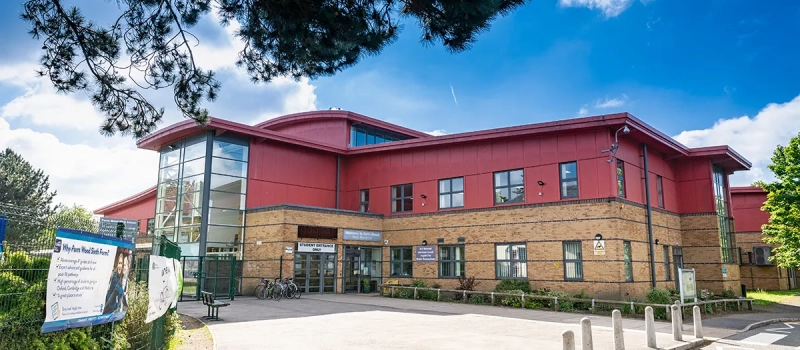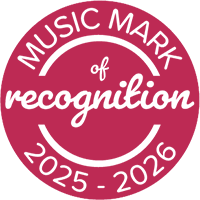Arts, Design & Technology
Art and Design
Our aim is to create a curriculum which gives students the learning platform to be inspired, to enjoy the act of creating and to ultimately express themselves.
We want to introduce students to a wide ranging and inspiring curriculum which teaches them the key formal elements of art while fostering a curious mind within the individual. We want to show students how to build an art project, exploring a theme, researching artists, expanding their ideas, developing an outcome and evaluating their progress.
It’s important we equip students with skills but that we also give them the freedom to allow them to follow their own creative route. With the overriding purpose to build independent creative thinkers at Ks4 and 5 who are proficient in their chosen media and thoughtful in their ideas. Our curriculum will introduce students to creative industries and career routes within the arts. Showing students how to progress their art education while also showing them possible next steps in their chosen career direction.
Not all of our students will graduate to careers within the arts but its important that our curriculum shows students how to engage and enjoy the act of creating art, building confidence and making them more resilient to failure while also promoting their reach beyond. It’s also important that we build and promote students who are curious and inquisitive about the arts. Showing them how to explore, understand and appreciate art across cultures and time. Introducing them to how our subject can enrich their wellbeing and lives, while helping them to become good consumers of art beyond their secondary education and the rest of their lives.
Key Stage 3
Year 7:
All about me project: Painting and drawing project exploring still life and student’s own interests
Year 8:
The Beach house: Drawing and cardboard construction project exploring Architecture
Year 9:
Japan: Cultural project exploring the wider world through clay construction and print
Key Stage 4
We offer the following courses at Key Stage 4:
GCSE Art (10-11):
- Project 1 Natural Forms
- Project 2 Identity
- Project 3 The exam
GCSE Photography (10-11):
- Project 1 fundamental camera skills
- Project 2 Identity
- Project 3 The exam
Key Stage 5
We offer the following course at Parrs Wood Sixth Form College:
A-level Art and Photography (12-13):
- Project 1 Everyday to the abstract
- Project 2 The Personal Investigation, theme dictated by the student
- Project 3 The Exam
Design and Technology
Design and Technology (Resistant Materials, Electronics and Textiles)
Key Stage 3
Year 7:
- All about me and my city: Mobile Device Holder
- All about me and my city LED Mood Light Project
Year 8:
- Designing for a UK based family attraction: Souvenir Clock Project
- Great British Board game and Electronic Dice Project
Year 9:
- Building a cosy world for all: Nesting boxes Project
- Building a cosy world for all: Architectural Modelling Project
Key Stage 4
GCSE Design & Technology (Year 11):
Continuation of NEA.
Assessment criteria:
- Producing a design brief and specification
- Generating design ideas
- Developing design ideas
- Realising design ideas
- Analysing & evaluating
- Subject content for exam
Areas of study:
- Core technical principles
- Specialist technical principles
Level 1/2 Vocational Award in Engineering (Year 10):
Unit 1: Manufacturing Engineering Products – Internal
- Understanding engineering drawings
- 1.2 Planning manufacturing
- 1.3 Using engineering tools and equipment
- 1.4 Implementing engineering processes
Unit 3: Solving Engineering Problems – External
- 3.1 Understanding the effects of engineering achievements
- 3.2 Understanding properties of engineering materials
- 3.3 Understanding methods of preparation, forming, joining and finishing of engineering materials
- 3.4 Solving engineering problems
Year 11:
Unit 2: Designing Engineering Products – Internal
- 2.1 Understanding function and meeting requirements
- 2.2 Proposing design solutions
- 2.3 Communicating an engineered design solution
- 2.4 Solving engineering problems
Unit 3: Solving Engineering Problems – External
- 3.1 Understanding the effects of engineering achievements
- 3.2 Understanding properties of engineering materials
- 3.3 Understanding methods of preparation, forming, joining and finishing of engineering materials
- 3.4 Solving engineering problems
Level 1/2 Diploma in Construction and Building Crafts Open Award (Year 10 & 11):
Exploring Health, Safety and Welfare in Construction.
A Career Working in Construction:
- Building Methods and Construction Technology
- Building Working Relationships with Customers
- Communication in the Workplace
- Responsible Work Practice
- Skills for Employment
Brick and Block Laying:
- Building Brick and Block Walls
- Carry out Practical Operations in Bricklaying
Carpentry and Joinery:
- Expanding Bench Joinery Skills
- Exploring Carpentry and Joinery
Kitchen and Bathroom Fitting:
- Assembling and Fitting Units for Interiors
- Dry Lining and Plasterboard Product Installation for Interiors
Painting and Decorating:
- Exploring Painting and Decorating
- Preparing Surfaces for Painting and Decorating
BTEC level 1/2 Tech Award in Construction and the built Environment (Year 10):
Component 1: Construction Technology (External Exam – Prep):
- Explore how sub-structures are constructed
- Explore how superstructures are constructed
- Understand the work of the construction industry
Component 2: Construction in Practice (Internal Assessment – Carpentry or brickwork):
- Hazards and risk for safe production of a practical construction outcome
- Produce a practical construction outcome
Year 11:
Component 1: Construction Technology (External Exam – Prep):
- Explore how sub-structures are constructed
- Explore how superstructures are constructed
- Understand the work of the construction industry
Component 3: Construction & Design:
- Needs of a client and the constraints on design when designing a low-rise building
- Graphically communicate the design of a low-rise building
Food Technology
The eatwell guide underpins the delivery of nutrition across key stage 3 within each of the projects. We use each section of the guide to creatively build upon the core concepts of nutrition. Practical lessons are planned alongside each theory session to inspire pupils to express a love for food whilst demonstrating an understanding of each principle. Across key stage 3 pupils will explore, revisit and consolidate understanding of each of the core principles. We understand that not all students will choose to study food prep and nutrition at key stage 4 therefore as a team we plan and deliver a curriculum where we are confident, and our learners are confident that they leave key stage 3 with a full understanding of healthy diet and lifestyle choices that will support them as they grow and develop into healthy young adults.
Key Stage 3
Year 7:
- Introduction to the importance of fibre linked to the digestive system
- Introduction to three types of fats and distinguishing “good and bad” fats and their impact on the arteries
- Introduction to how carbohydrates give us energy and how they divide into starches/sugars ‘good and bad’
Year 8:
- Fibre – A look into the digestive system and how to increase the consumption of fibre linked to the sources of high fibre foods around the world
- Fats – visible and invisible fats and impact of too much / not enough
- Carbohydrates – “good and bad” carbohydrates and the understanding of sugars and complex
Year 9:
- Insoluble and soluble fibres
- Current issues with obesity and the government’s response
- Mono/di saccharides
Key Stage 4
Year 10:
The theory we will learn will be in preparation for the end of course written exam at the end of year 11. The main topics that umbrella the lessons are as follows –
- Food, nutrition and health
- Food science
- Food safety
- Food choice
- Food provenance
Year 11:
Year 11 focuses upon the completion of their two NEA pieces of work detailed below and also revision for the final exam
- Autumn focus is NEA1
- Spring focus is NEA2 and their practical exam
- Summer focus is revision for their final exam
NEA 1: Food investigation (30 marks)
Students’ understanding of the working characteristics, functional and chemical properties of ingredients.
Practical investigations are a compulsory element of this NEA task.
Written or electronic report (1,500–2,000 words) including photographic evidence of the practical investigation.
NEA 2: Food preparation assessment (70 marks)
Students’ knowledge, skills and understanding in relation to the planning, preparation, cooking, presentation of food and application of nutrition related to the chosen task.
Students will prepare, cook and present a final menu of three dishes within a single period of no more than three hours, planning in advance how this will be achieved.
Written or electronic portfolio including photographic evidence. Photographic evidence of the three final dishes must be included.
Textiles
Key Stage 3
Year 7:
The Manchester Bee
Year 8:
The Supermarket Stitch Project
Year 9:
The Upcycled Project –sustainability and the global effects the textiles industry has on the environment; they will make fashion items from recycled materials.
Contact
Director of Faculty: R. Goldstone (r.goldstone@pwhs.co.uk)
















